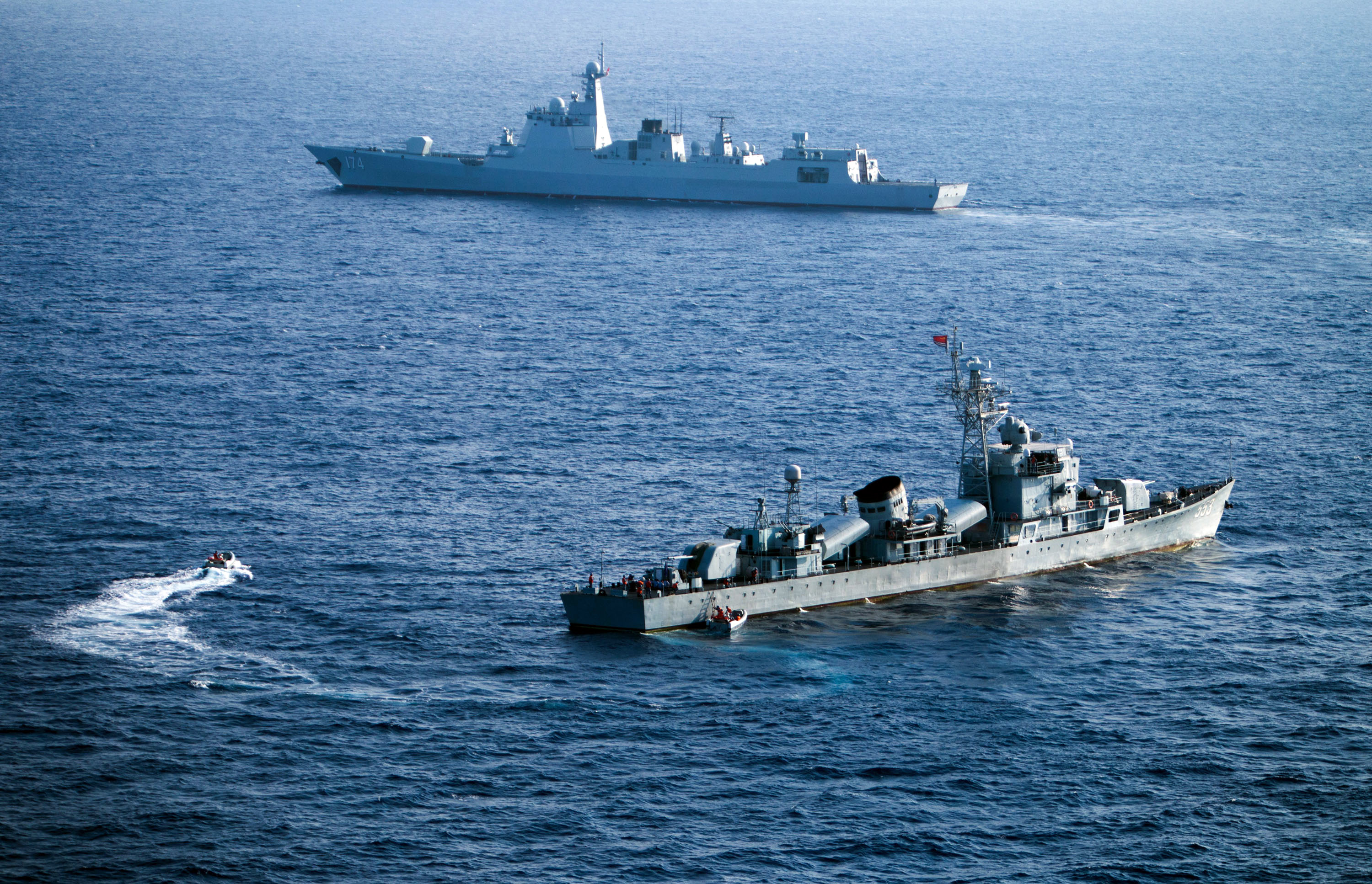
China and Russia will hold joint naval exercises in the South China Sea in September, Beijing’s defence ministry said on July 28, 2016, after an international tribunal invalidated the Asian giant’s extensive claims in the area. / AFP PHOTO / STR
by Ludovic EHRET
BEIJING, China (AFP) — China and Russia will hold joint naval exercises in the South China Sea in September, Beijing’s defense ministry said Thursday, after an international tribunal invalidated the Asian giant’s extensive claims in the area.
The drills will be carried out in the “relevant sea and air of the South China Sea”, defense ministry spokesman Yang Yujun told reporters at a monthly briefing.
With international diplomatic tensions mounting and Washington regularly sending warships into the strategically vital area to assert the right to freedom of navigation, the move could see vessels from several of the world’s most powerful militaries in the same region at the same time.
The drills aimed to “consolidate and develop” China and Russia’s comprehensive strategic partnership, and “enhance the capabilities of the two navies to jointly deal with maritime security threats” Yang said.
The announcement comes after a tribunal at the Permanent Court of Arbitration in The Hague ruled that there was “no legal basis” to Beijing’s claims in the South China Sea, embodied in a “nine-dash line” dating from Chinese maps of the 1940s and extending almost to the coasts of other countries, which have competing claims.
China has built a series of artificial islands on rocks and reefs in the area hosting facilities capable of supporting military operations, widely seen as an attempt to bolster its control of the waters.
The tribunal ruling — in a case brought by the Philippines — infuriated Beijing, which rejected it as “waste paper” and reiterated its right to declare an Air Defense Identification Zone controlling flights over the area.
China and Russia have close military and diplomatic ties, often in opposition to the West, particularly the United States, and their leaders Xi Jinping and Vladimir Putin enjoy a tight relationship.
The two sides hold joint drills regularly “on land and sea”, Yang said, which “contribute to peace and stability.”
September’s exercise was “routine” and “does not target any third party”, he added.
Last August, the two powers — who were allies then rivals during the Soviet era — carried out military exercises in the waters and airspace of the Peter the Great Gulf, south of the Russian Pacific city of Vladivostok, involving 22 vessels, up to 20 aircraft and more than 500 marines.
In May last year, they conducted their first joint naval exercises in European waters in the Black Sea and Mediterranean, China’s farthest-ever drills from its home waters.
Xi and Putin meet frequently and their countries, both permanent members of the United Nations Security Council, often take similar stances there on divisive issues such as the conflict in Syria.
Sensitive factors
In response to Beijing’s increased activity in the South China Sea, the US began a series of “freedom of navigation” operations in the area, sailing naval vessels within 12 nautical miles — the normal territorial limit around natural land — of reefs in the region.
The missions were widely seen as an attempt to push back against China’s increasing assertiveness, although the Pentagon said they were also a warning to Vietnam, Taiwan and the Philippines.
On Monday, US National Security Adviser Susan Rice told Chinese officials in Beijing that the US intended to continue its patrols in the region, while the vice chairman of China’s Central Military Commission, Fan Changlong, warned that ties between the two powers could easily fray.
“We should be honest with ourselves that deep down in this relationship we’re still faced with obstacles and challenges,” Fan said, adding that military ties had been “impacted by some complicated and some sensitive factors”.
Rice noted that “risks of unintended consequences” of the two countries’ forces operating in ever-closer proximity had been reduced thanks to better communication and other confidence-building measures.
© 1994-2016 Agence France-Presse







